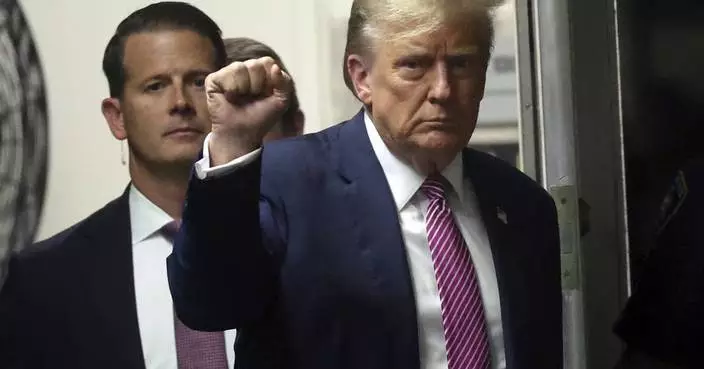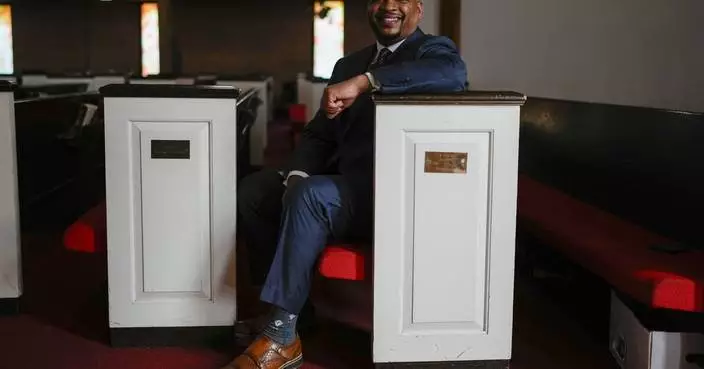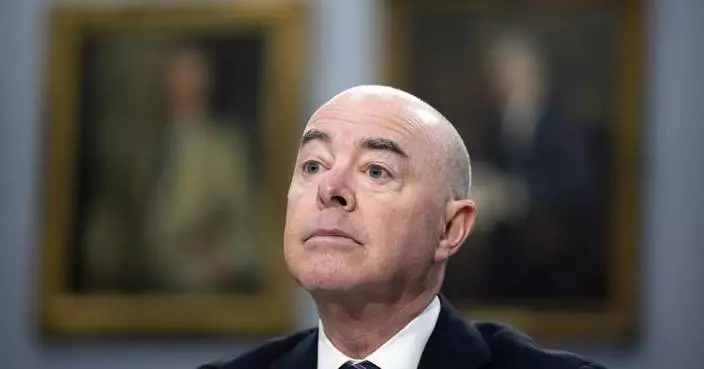The push toward immigration votes in the House is intensifying the divide among Republicans on one of the party's most animating issues and fueling concerns that a voter backlash could cost the GOP control of the House in November.
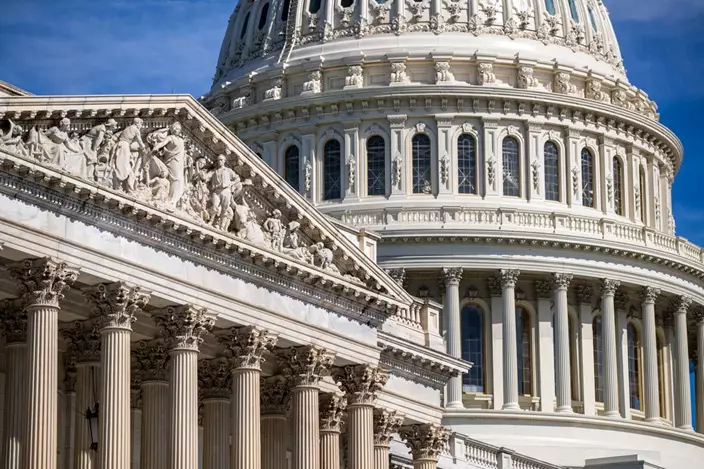
The Capitol is seen in Washington, Friday, June 15, 2018. The push toward immigration votes in the House is intensifying the divide among Republicans on one of the party’s most animating issues __ and fueling concerns that a voter backlash could cost the party control of the House in November. (AP Photo/J. Scott Applewhite)
To many conservatives, the compromise immigration proposal released this past week by House Speaker Paul Ryan, R-Wis., is little more than "amnesty."
One tea party group described the Republican plan as "the final betrayal." Fox Business host Lou Dobbs, who is close to President Donald Trump, tweeted Friday that Ryan is "trying to open our borders even more and give illegal immigrants the biggest amnesty in American history."
Passage of the bill could alienate conservatives and depress turnout at a time when enthusiasm among Democrats is high. Yet scuttling the bill could turn off independent voters, an especially important bloc for House Republicans competing in dozens of districts that Democrat Hillary Clinton won in the 2016 presidential election.
"The GOP's in a tough spot," said Republican pollster Frank Luntz. "The hardcore Trump voter has a different point of view than the ever-important independent voter, and there doesn't seem to be a middle ground."
The draft legislation, resulting from intense negotiations between moderates and conservatives, includes a path to citizenship for an estimated 1.8 million young immigrants in the country illegally. The plan includes $25 billion for a wall along the U.S.-Mexico border and other security measures sought by the White House.
"While the bill contains some positive provisions, including full funding for the border wall and closing loopholes in current law that sustain illegal border surges, it is still a mass amnesty," said RJ Hauman, of the conservative Federation for American Immigration Reform.
"This bill hardly fulfills President Trump's bold promise to fix immigration, and sure isn't a winning message for the GOP in the midterms," Hauman said.
Trump will meet with House Republicans next week to discuss the issue just days after his comments during an impromptu Fox News interview on the White House driveway nearly derailed the planned House vote, according to a House GOP official who spoke on condition of anonymity to discuss the plans ahead of an official announcement.
Trump had said in the interview that he wouldn't sign what was described as the "moderate" immigration bill, even though the version written by House leadership is based on his own priorities. White House officials later said the president had misspoken and didn't realize he was being asked about the compromise bill. The meeting is scheduled for 5:30 p.m. Tuesday, the person said.
Skittish conservative lawmakers have indicated there's little chance they would support the current plan unless Trump were to give it a full embrace.
"House Republicans are not going to take on immigration without the support and endorsement of President Trump," said Rep. Patrick McHenry, R-N.C., the GOP's chief deputy vote counter.
The politics of the immigration debate have grown more heated since the administration adopted a "zero tolerance" approach at the Southern border. The policy is leading to an increase in the number of detained immigrants being separated from their children.
Trump has tried to blame Democrats for his own administration's policy, tweeting Saturday that they "can fix their forced family breakup at the Border by working with Republicans on new legislation, for a change!"
Facing a national uproar, House GOP leaders included a provision in the immigration proposal that would require families to be kept together for as long as they are in the custody of the Homeland Security Department.
The proposed fix won approval from moderate House Republicans locked in difficult re-election battles, but not from Republican Senate candidates running competitive races in GOP-leaning states. None spoke in support of the bill.
"We're studying the proposal," said Arizona Rep. Martha McSally, who is viewed as the GOP establishment's favorite in one of the top Senate races. "I try not get swayed by what the emotions are or the pressure. I really try to look at the policy issues."
Kelli Ward, one of McSally's main opponents in the Arizona Senate primary on Aug. 28, was more scathing in her assessment.
"Compromising on the rule of law to grant amnesty to millions of illegal immigrants is the wrong path to take," she said of the House plan. "Congress should focus on border security and stop talking about amnesty as a solution."
In Pennsylvania, Rep. Lou Barletta, the Republican nominee against Democratic Sen. Bob Casey took an equally aggressive approach against his own party's immigration plan.
"I hate it," he told The Associated Press. "What does it accomplish? It's amnesty."
Barletta said he has compassion for the children caught up in the immigration debate. But he said he wouldn't support an immigration bill unless it also blocked employers from hiring immigrants who are in the U.S. illegally, eliminated "sanctuary cities" and ended family-based migration.
Barletta said his party should "absolutely" fear a political backlash from its base this fall should Republicans push through the current compromise.
Other high-profile Republican candidates avoided questions about the immigration plan altogether, highlighting the political sensitivity of the issue.
The Republicans who declined to comment or ignored AP questions included Senate candidates Patrick Morrisey of West Virginia, Josh Hawley of Missouri, Mike Braun of Indiana and Matt Rosendale of Montana.
In an election year in which Democrats appear to have an advantage on voter enthusiasm, Republicans can ill afford to alienate any voters this fall, particularly their most passionate supporters.
Former White House counselor Steve Bannon lobbied against the compromise in private meetings with House conservatives earlier this past week.
He warned that Republicans "will lose the House and Trump will be impeached" if the House backs the new measure, according to Iowa Rep. Steve King, an immigration hard-liner who was in attendance.
WASHINGTON (AP) — For Senate Republican leader Mitch McConnell and House Speaker Mike Johnson, the necessity of providing Ukraine with weapons and other aid as it fends off Russia's invasion is rooted in their earliest and most formative political memories.
McConnell, 82, tells the story of his father’s letters from Eastern Europe in 1945, at the end of World War II, when the foot soldier observed that the Russians were “going to be a big problem” before the communist takeover to come. Johnson, 30 years younger, came of age as the Cold War was ending.
As both men pushed their party this week to support a $95 billion aid package that sends support to Ukraine, as well as Israel, Taiwan and humanitarian missions, they labeled themselves “Reagan Republicans” an described the fight against Russian President Vladimir Putin in terms of U.S. strength and leadership. But the all-out effort to get the legislation through Congress left both of them grappling with an entirely new Republican Party shaped by former President Donald Trump.
While McConnell, R-Ky., and Johnson, R-La., took different approaches to handling Trump, the presumptive White House nominee in 2024, the struggle highlighted the fundamental battle within the GOP: Will conservatives continue their march toward Trump’s “America First” doctrine on foreign affairs or will they find the value in standing with America's allies? And is the GOP still the party of Ronald Reagan?
“I think we’re having an internal debate about that,” McConnell said in an interview with The Associated Press. “I’m a Reagan guy and I think today — at least on this episode — we turned the tables on the isolationists.”
Still, he acknowledged, “that doesn’t mean they’re going to go away forever.”
McConnell, in the twilight of his 18-year tenure as Republican leader, lauded a momentary victory Tuesday as a healthy showing of 31 Republicans voted for the foreign aid; that was nine more than had supported it in February. He said that was a trend in the right direction.
McConnell, who has been in the Senate since 1985, said passing the legislation was “one of the most important things I’ve ever dealt with where I had an impact."
But it wasn’t without cost.
He said last month he would step away from his job as leader next year after internal clashes over the money for Ukraine and the direction of the party.
For Johnson, just six months into his job as speaker, the political crosscurrents are even more difficult. He is clinging to his leadership post as right-wing Republicans threaten to oust him for putting the aid to Ukraine to a vote. While McConnell has embraced American leadership abroad his entire career, Johnson only recently gave complete support to the package.
Johnson has been careful not to portray passage as a triumph when a majority of his own House Republicans opposed the bill. He skipped a celebratory news conference afterward, describing it as “not a perfect piece of legislation” in brief remarks.
But he also borrowed terms popularized by Reagan, saying aggression from Russia, China and Iran “threatens the free world and it demands American leadership.”
“If we turn our backs right now, the consequences could be devastating,” he said.
Hard-line conservatives, including some who are threatening a snap vote on his leadership, are irate, saying the aid was vastly out of line with what Republican voters want. They condemned both Johnson and McConnell for supporting it.
“House Republican leadership sold out Americans and passed a bill that sends $95 billion to other countries,” said Republican Sen. Tommy Tuberville of Alabama, who opposed the bill. He said the legislation "undermines America's interests abroad and paves our nation's path to bankruptcy.”
Johnson has been lauded by much of Washington for doing what he called “the right thing" at a perilous moment for himself and the world.
“He is fundamentally an honorable person,” said Senate Majority Leader Chuck Schumer, D-N.Y., who brokered the negotiations and spent hours on the phone and in meetings with Johnson, McConnell and the White House.
Sen. Mitt Romney, R-Utah, said Johnson and McConnell “both showed great resolve and backbone and true leadership at a time it was desperately needed.”
When McConnell began negotiations over President Joe Biden's initial aid request last year, he quickly set the terms for a deal. He and Schumer agreed to pair any aid for Ukraine with help for Israel, Schumer said, and McConnell demanded policy changes at the U.S. border with Mexico.
On McConnell's mind, he said, was that Trump was “unenthusiastic” about providing more aid to Kyiv. Yet McConnell, whose office displays a portrait of every Republican president since Reagan with the exception of Trump, had a virtually nonexistent relationship with the man he often refers to not by name, but simply as “the former president.”
Still, Trump would prove to hold powerful sway. When a deal on border security neared completion after months of work, Trump eviscerated the proposal as insufficient and a “gift” to Biden's reelection. Conservatives, including Johnson, rejected it out of hand.
With the border deal dead, McConnell pushed ahead with Schumer on the foreign aid, with the border policies stripped out, solidifying their unusual alliance. The Senate leaders met weekly throughout the negotiation.
“We disagreed on a whole lot, but we really stuck together,” Schumer said.
“We just persisted. We could not give up on this."
Meanwhile, a small group of GOP senators began working on an idea they thought could give Johnson some political wiggle room. Sens. Lindsey Graham of South Carolina, Kevin Cramer of North Dakota and Markwayne Mullin of Oklahoma took an idea that Trump had raised — structuring the aid to Ukraine as a loan — and tried to make it reality.
Through a series of phone calls with Trump, several House members, as well as the speaker, they worked to structure roughly $9 billion in economic aid for Ukraine as forgivable loans — just as it was in the final package.
“Our approach this time was to make sure that the politics were set, meaning that President Trump is on board,” Mullin said.
The conversations culminated in Johnson making a quick jaunt to Florida, where he stood side by side with Trump at his Florida club just days before moving ahead with the Ukraine legislation in the House.
It was all enough, with Democratic help, to get the bill across the finish line. The legislation, which Biden signed into law on Wednesday, included some revisions from the Senate bill, including the loan structure and a provision to seize frozen Russian central bank assets to rebuild Ukraine. Nine GOP senators who had opposed the first version of the bill swung to “yes” largely because of the changes Johnson had made.
The result was a strong showing for the foreign aid in the Senate, even though the decision could prove costly for Johnson.
What comes next on Ukraine is anyone's guess.
While the $61 billion for Ukraine in the package is expected to help the country withstand Moscow's offensive this year, more assistance will surely be needed. Republicans, exhausted after a grueling fight, largely shrugged off questions about the future.
“This one wasn’t easy,” Mullin said.
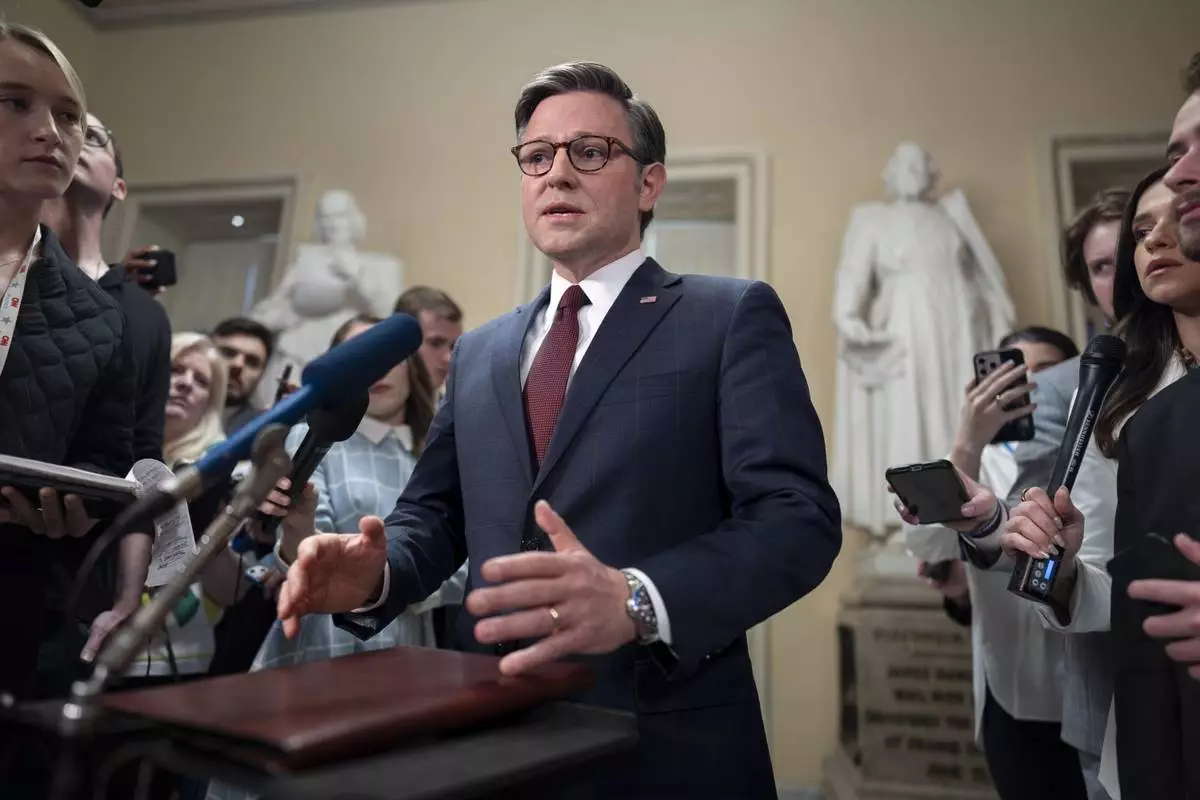
Speaker of the House Mike Johnson, R-La., talks to reporters just after the House voted to approve $95 billion in foreign aid for Ukraine, Israel and other U.S. allies, at the Capitol in Washington, Saturday, April 20, 2024. (AP Photo/J. Scott Applewhite)
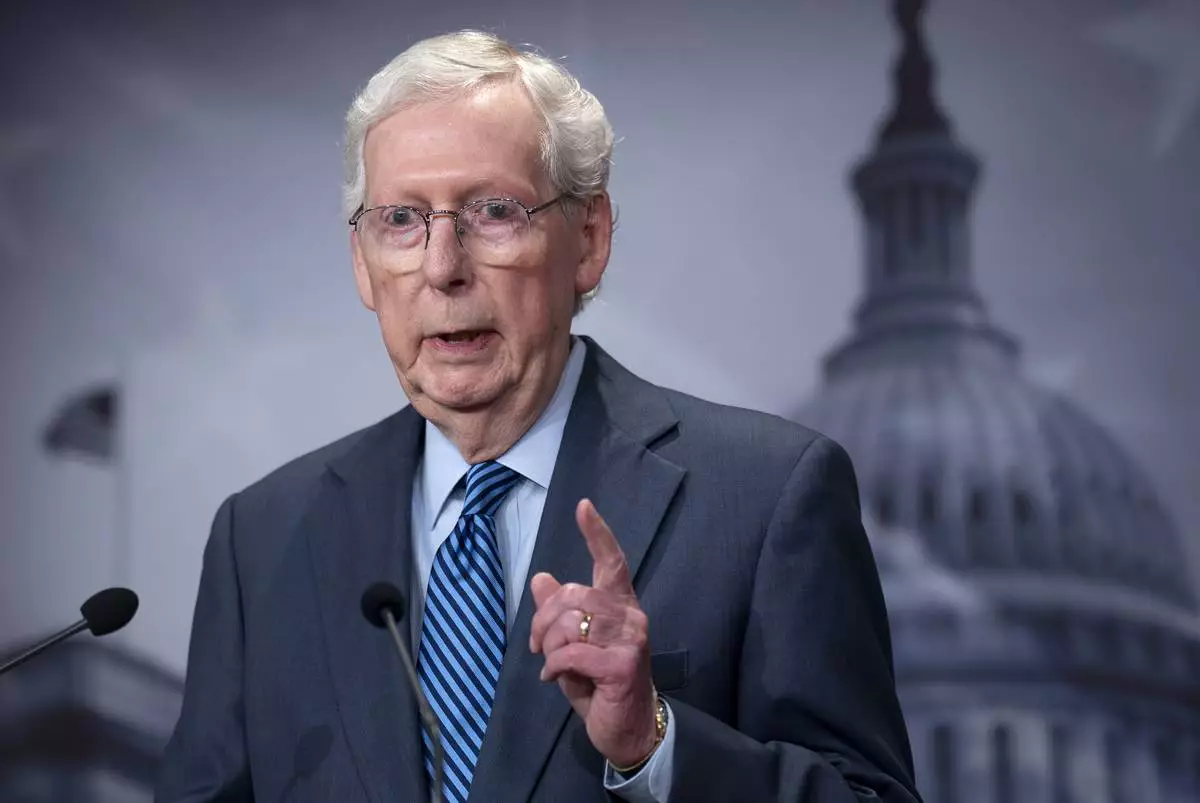
Senate Minority Leader Mitch McConnell, R-Ky., praises support for Ukraine as the Senate is on track to pass $95 billion in war aid to Ukraine, Israel and Taiwan, at the Capitol in Washington, Tuesday, April 23, 2024. (AP Photo/J. Scott Applewhite)

Speaker of the House Mike Johnson, R-La., talks to reporters just after the House voted to approve $95 billion in foreign aid for Ukraine, Israel and other U.S. allies, at the Capitol in Washington, Saturday, April 20, 2024. (AP Photo/J. Scott Applewhite)
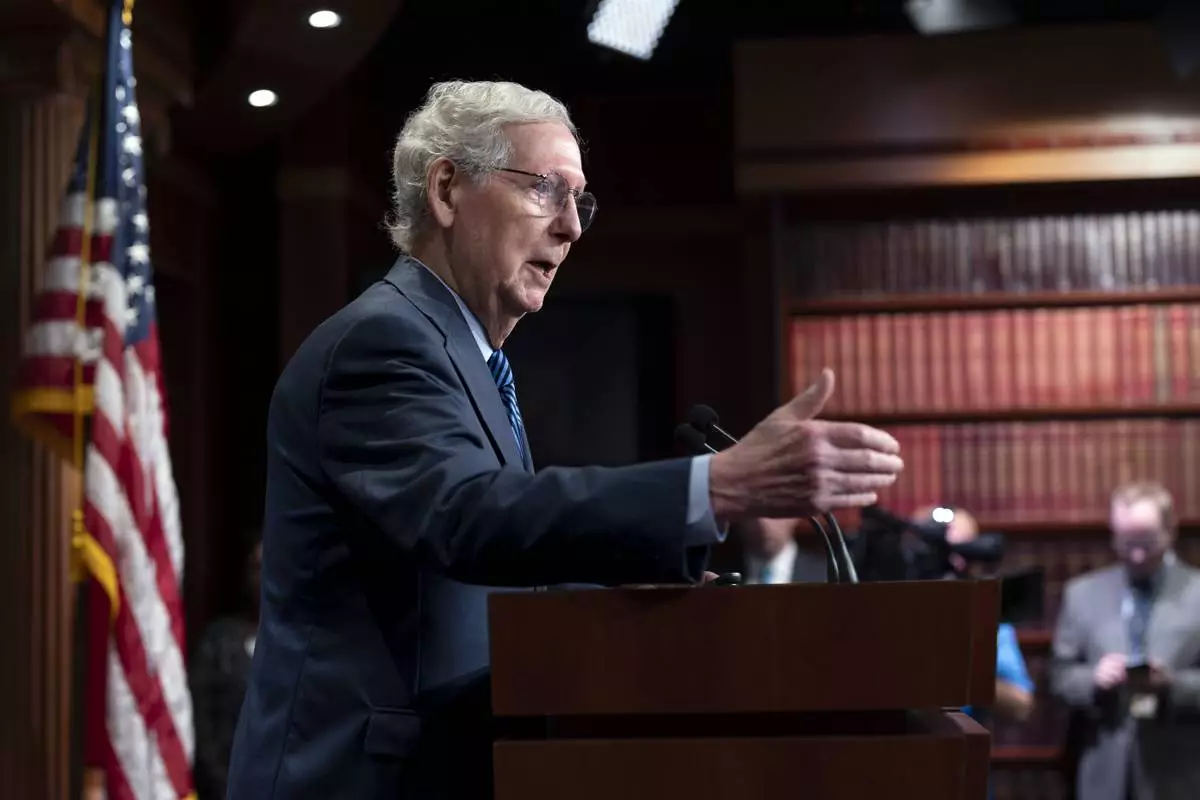
Senate Minority Leader Mitch McConnell, R-Ky., praises support for Ukraine as the Senate is on track to pass $95 billion in war aid to Ukraine, Israel and Taiwan, at the Capitol in Washington, Tuesday, April 23, 2024. (AP Photo/J. Scott Applewhite)

Speaker of the House Mike Johnson, R-La., talks to reporters just after the House voted to approve $95 billion in foreign aid for Ukraine, Israel and other U.S. allies, at the Capitol in Washington, Saturday, April 20, 2024. (AP Photo/J. Scott Applewhite)
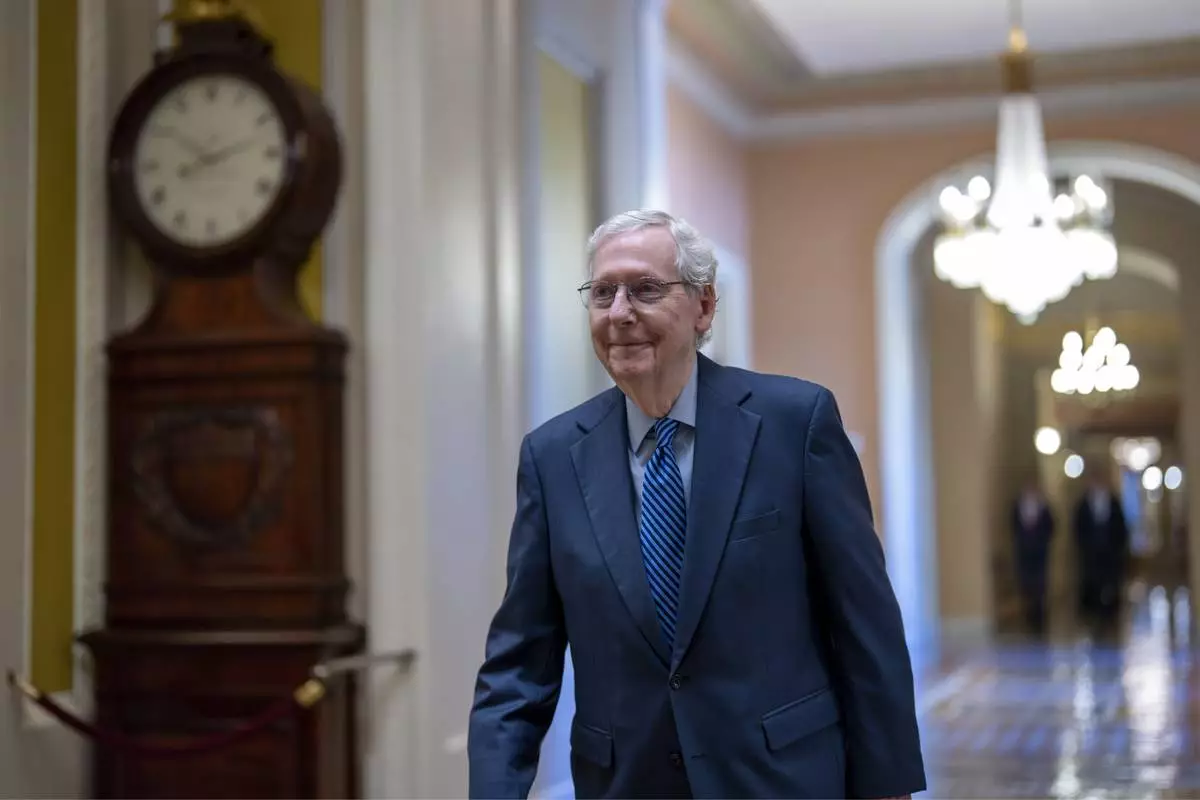
Senate Minority Leader Mitch McConnell, R-Ky., walks to the chamber as the Senate prepares to advance the $95 billion aid package for Ukraine, Israel and Taiwan passed by the House, at the Capitol in Washington, Tuesday, April 23, 2024. (AP Photo/J. Scott Applewhite)











